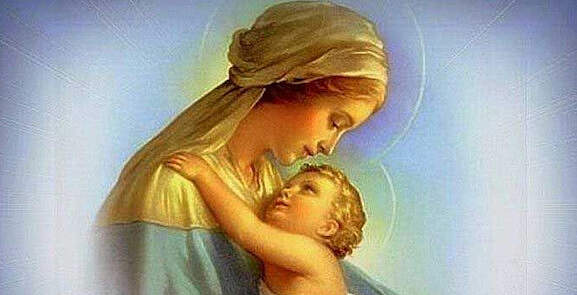
Today we are reminded of the words of blessing which Elizabeth spoke to the Virgin Mary: “Blessed are you among women, and blessed is the fruit of your womb! And why has this happened to me, that the mother of my Lord comes to me?” (Lk 1:42-43).
This blessing is in continuity with the priestly blessing which God had given to Moses to be passed on to Aaron and to all the people: “The Lord bless you and keep you; the Lord make his face to shine upon you and be gracious to you; the Lord lift up his countenance upon you, and give you peace” (Num 6:24-26). In celebrating the Solemnity of Mary Most Holy, the Holy Mother of God, the Church reminds us that Mary, more than anyone else, received this blessing. In her the blessing finds fulfillment, for no other creature has ever seen God’s face shine upon it as did Mary. She gave a human face to the eternal Word, so that all of us can contemplate him.
In addition to contemplating God’s face, we can also praise him and glorify him, like the shepherds who came away from Bethlehem with a song of thanksgiving after seeing the Child and his young mother (cf. Lk 2:16). The two were together, just as they were together at Calvary, because Christ and his mother are inseparable: there is a very close relationship between them, as there is between every child and his or her mother. The flesh (caro) of Christ – which, as Tertullian says, is the hinge (cardo) of our salvation – was knit together in the womb of Mary (cf. Ps 139:13). This inseparability is also clear from the fact that Mary, chosen beforehand to be the Mother of the Redeemer, shared intimately in his entire mission, remaining at her Son’s side to the end on Calvary.
Mary is so closely united to Jesus because she received from him the knowledge of the heart, the knowledge of faith, nourished by her experience as a mother and by her close relationship with her Son. The Blessed Virgin is the woman of faith who made room for God in her heart and in her plans; she is the believer capable of perceiving in the gift of her Son the coming of that “fullness of time”(Gal 4:4) in which God, by choosing the humble path of human existence, entered personally into the history of salvation. That is why Jesus cannot be understood without his Mother.
Pope Francis, homily of January 1, 2015